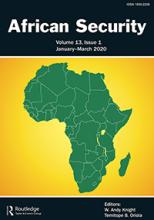Land Library
Welcome to the Land Portal Library. Explore our vast collection of open-access resources (over 74,000) including reports, journal articles, research papers, peer-reviewed publications, legal documents, videos and much more.
/ library resources
Showing items 1 through 9 of 81.The paper seeks to establish the role of religion and culture in the realization of women’s rights to property in Nigeria. It begins by affirming that protecting women’s rights to property in Nigeria is a fundamental step towards achieving the 5th Sustainable Development Goal of gender equality.
The recent spate of violence mostly in north-central and southern Nigeria, typically credited to conflicts between herders and farmers, and the reactions, narratives, and representations that have attended them, calls for an examination of core security questions: who or what is to be secured, fr
The recent spate of violence mostly in north-central and southern Nigeria, typically credited to conflicts between herders and farmers, and the reactions, narratives, and representations that have attended them, calls for an examination of core security questions: who or what is to be secured, fr
As gold prices soared from 2008 onwards, tens of thousands of foreign miners, especially from China, entered the small-scale mining sector in Ghana, despite it being ‘reserved for Ghanaian citizens’ by law.
The new India’s Right to Food Campaign website was launched in March 2014 at the campaign’s fifth convention.
Less than 2% of the land available worldwide is owned by women. Why is the issue of land so gendered? What approaches and lessons learned can development professionals utilise to address the issue of gender and land?
The Integrated Drylands Development Programme (IDDP) is a global UNDP initiative to promote sustainable development in the drylands, and advance the implementation of the UN Convention to Combat Desertification.
In Africa, the pursuit of gender equality in inheritance rights remains one of the most difficult challenges due to its entrenched patriarchal characteristics. This is also the case in the rural communities of South-Eastern Nigeria.
Across Africa, land is integral to identity and existence. Access to, and ownership of land for women is often problematic – particularly when laws and culture collide.




